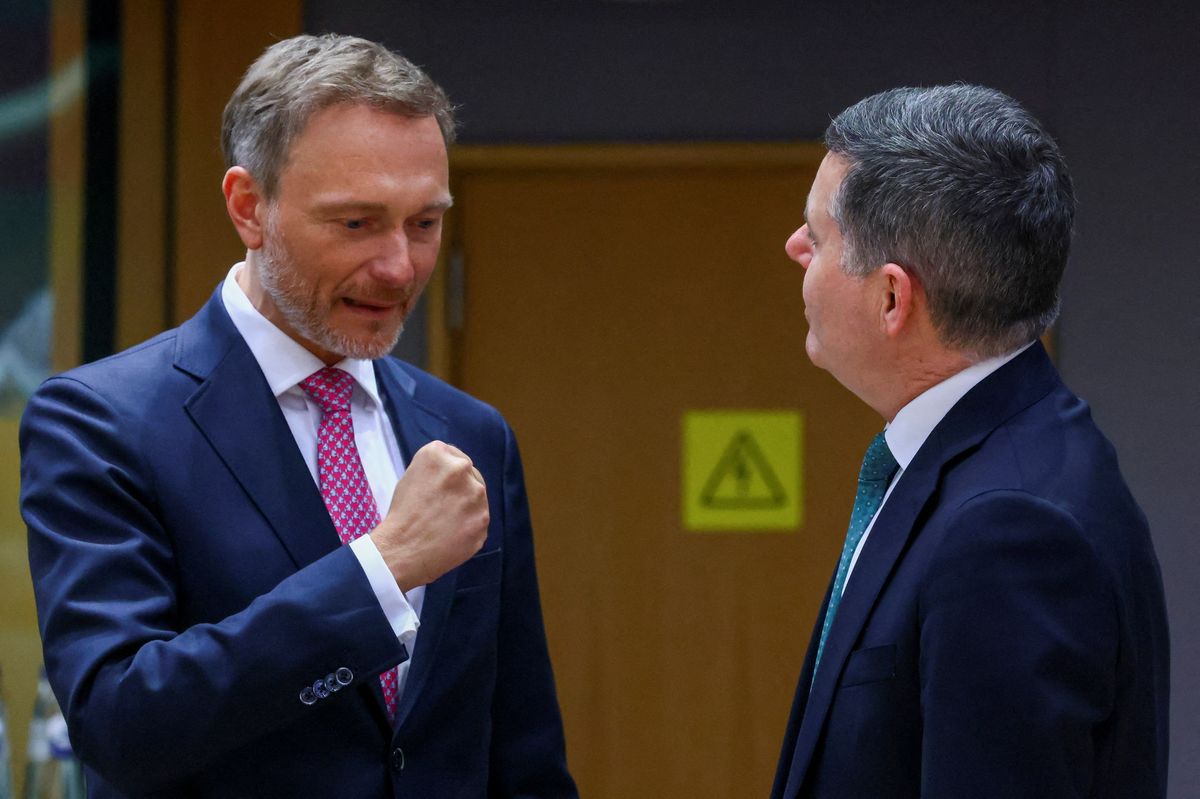The EU sets the bar with the world's first regulatory framework for crypto
Last year, the crypto market was in shambles.

A few minutes every morning is all you need.
Stay up to date on the world's Headlines and Human Stories. It's fun, it's factual, it's fluff-free.
The backstory: Last year, the crypto market was in shambles. Coin prices crashed, big players like Terra and FTX went down the drain and bitcoin took a nosedive below US$20,000. But here's the thing. All that chaos made everyone realize that we need some comprehensive regulation in the crypto world. And guess who's ahead of the game? It’s the EU.
The EU has been cooking up a law called the Markets in Crypto Act (MiCA) for almost three whole years. The idea behind it is to regulate digital assets like stablecoins and bitcoin to protect investors and put an end to tax evasion and money laundering, making those sneaky moves a thing of the past. So how are they planning to do that? By keeping a watchful eye on crypto firms and transactions and making them more transparent.
More recently: Last month, the European Parliament gave a big thumbs up to the MiCA law. It was a landslide victory, with a whopping 517 votes in favor and only 38 against. This law could be a game-changer because it's the first time governments are really stepping in to regulate the crypto industry on a massive scale.
Parliament also gave the green light to another law called the "travel rule." And no, it's not about packing bags and jetting off on vacation. Basically, just like in regular banking, all the deets on the sender and receiver of crypto transfers must follow the asset wherever it goes. The whole idea is to prevent money laundering.
The development: Now, the EU is officially a frontrunner in crypto regulation with its new MiCA law, and it's a done deal. On Tuesday, everything was finalized, and the new rules are set to take effect next year. Basically, starting in 2024, any company in the EU dealing with crypto assets will need a license to issue, trade and securely stash those digital goodies. And once they get that license, they can rock and roll their crypto business in all 27 EU member countries.
There’s more to it. The big shots in the crypto game will also have to spill the tea on their energy consumption. And by January 2026, those service providers better play detective because they'll have to collect the names of both senders and recipients of crypto assets, no matter the value. Originally that “travel rule” had a €1,000 threshold, but now it applies to every transaction, no matter how small (unless a self-hosted wallet is involved). It's like the EU wants to know who's who in the crypto zoo. Plus, the bloc is also getting cozy on the tax front, having member countries join forces and share tax-related info, making sure everyone plays fair and square.
This is a big deal on a global scale because other big governments are still working out the kinks and trying to figure out how to regulate this industry. For example, Britain has some ideas outlined, but nothing’s set in stone yet. And the US is using existing securities laws in an enforcement-first approach – it still hasn’t even figured out which agency should handle regulation, let alone if there should be new rules that apply to digital assets. So, the EU’s framework is likely going to shape global policies moving forward since it crossed the finish line first.
Key comments:
"New users of crypto are now skipping the basics in investing, capital allocation and risk management going into low cap tokens such as $DOGE coin or $SAFEMOON without fully knowing the risks and planning to be millionaires overnight," said Jeff Hancock, CEO of Coinpass, to TMS. "People are losing savings, [from] deposits and college tuition [to] not knowing how to properly protect themselves from scams, loss of funds or simply buying into the market at the wrong time."
"Recent events have confirmed the urgent need for imposing rules which will better protect Europeans who have invested in these assets, and prevent the misuse of crypto industry for the purposes of money laundering and financing of terrorism," said Elisabeth Svantesson, finance minister for Sweden, which holds the EU presidency.
"This regulation brings a competitive advantage for the EU," said Stefan Berger, the lawmaker who steered the rules through Parliament.
“We are putting safeguards in place that would prevent companies active on the EU market from engaging in some of the practices that led certain cryptoasset operators to collapse,” McGuinness said during the Parliament debate. “As we have seen in recent months, stringent rules and supervision are very much needed because we’ve had the collapse of projects such as FTX, Terra Luna, Celsius and Voyager.”




Comments ()